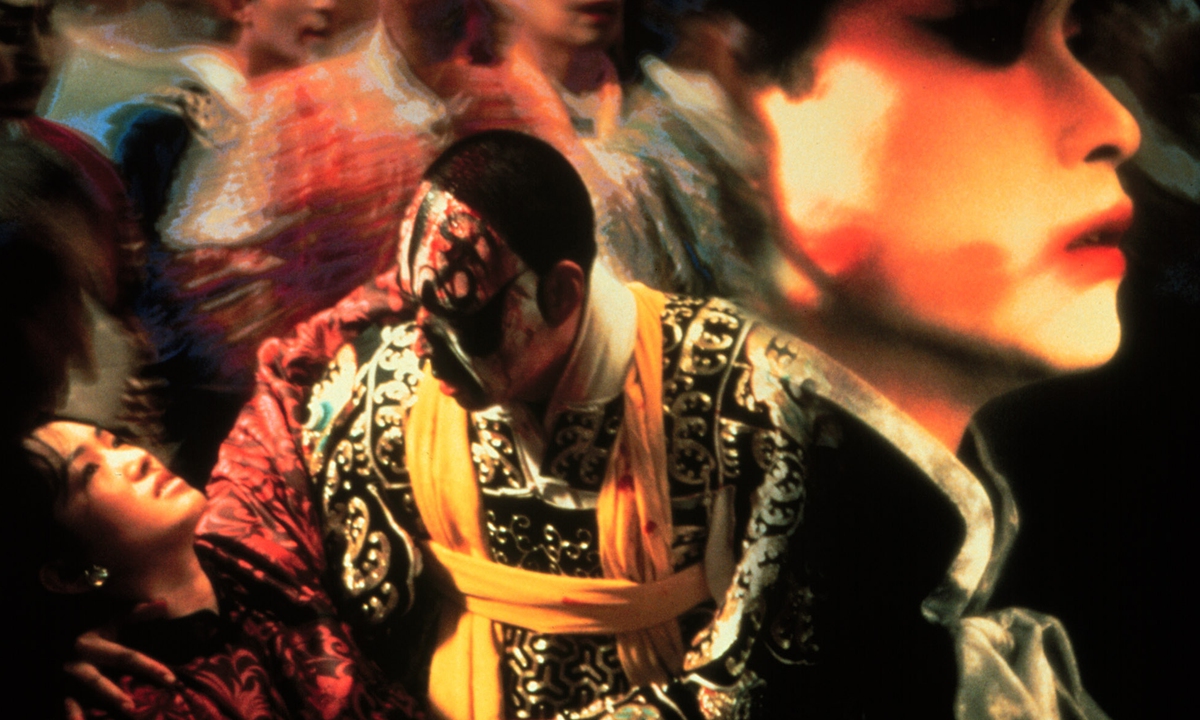Chinese classic ‘Farewell My Concubine’ to be made into Western musical
Source: Global Times Published: 2020/11/3 3:27:12

A Scene from the film of 'Farewell My Concubine' (1993). Photo: IC
Announced by the well-known US musical composer Jason Robert Brown via Twitter, a new musical project adapted from the classic Chinese movie Farewell My Concubine is now in the casting process. It means the 1993 film will have a new Western theatrical interpretation.
Originally directed by famous Chinese director Chen Kaige and adapted from the prolific writer Lilian Lee's novel of the same name, Farewell My Concubine was a heavyweight film starring international actors such as Leslie Cheung and Gong Li. It explores the subject of identity to deliver a sorrow-saturated story of the relationship between two Peking Opera actors Cheng Dieyi and Duan Xiaolou.
The film was a representative of China's Fifth-Generation cinema movement, and was the first Chinese-language movie to win the Palme d'Or at the Cannes Film Festival in 1993, helping to bring modern Chinese cinema to the international stage.
"The film embodies the Fifth-Generation director's general pursuit of 'seeking one's roots.' It is an epic work of film," Shi Wenxue, a Chinese film and cultural critic, told the Global Times on Monday.
The new English stage adaptation held its first open call in January. Besides revealing chief creators such as Kenneth Lin, an award-winning US playwright who has worked on Star Trek: Discovery, the new musical project also released a casting call in October that specified high standards such as requiring that the lead actor "carries the weight of someone who has trained for a lifetime and mastered a difficult art."
Brown's tweet about the Western version of the famed film ignited the imagination of fans in China, who took to discussing the topic on China's Twitter-like Sina Weibo.
However, some netizens were wary of the prospect.
"It's like staging The Shawshank Redemption as a Peking Opera," commented one netizen. "Classics are hard to replicate," wrote another.
Addressing such concerns, Shi told the Global Times on Monday that "The Disney film Mulan is a reminder… that due to different perspectives, purposes, and deviations in text translation, there will definitely be deviations in cultural encoding and decoding."
"In Farewell My Concubine, Peking Opera is not a background, but a symbolic element that embodies China's cultural essence. If one wants to make a Broadway-style musical without showing the charm of the art, you will lose the most brilliant part of this work," Shi emphasized.
Given such considerations, there are fans who have set high expectations for the film.
"Cultural elements are like a type of special glue, and embracing a Western interpretation is a trend for the better," one netizen posted on Sina Weibo.
The title of the original novel gets its name from a traditional Chinese opera about the historical figure of Yu Ji, a beloved concubine of Xiang Yu, the king of Western Chu in the late Qin Dynasty (221-207BC).
"In fact, as early as 1930, [Great Master] Mei Lanfang performed [the traditional Peking Opera version of] Farewell My Concubine in New York, and the audience at that time was overwhelmed by the superb performance… this is the charm of Peking Opera, a cultural embodiment of China," Shi noted.
"Just as they are curious about the story of Farewell my Concubine, I am curious about how they will adapt the story, and what perspective they will use," Shi said.